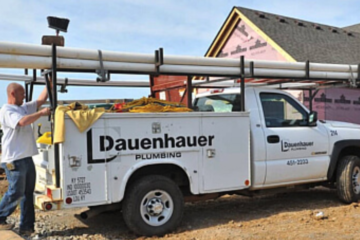You will see a lot of people taking their hoardings seriously, but it is a pretty serious problem. It usually creeps up slowly, and those dealing with it might not even realize it until things get out of hand.
It would be concerning when you feel like someone you care about is on their way to becoming a hoarder. You also can not call hoarders cleaning services right away. Figuring out how to bring it up with them can feel tough, especially if they do not see it themselves. You might have already tried to help, but they might not be ready to accept it. It is a tough situation that can leave you feeling worried and frustrated.
Understanding Hoarding Disorder in Someone You Care About
Many of us deal with holding onto things or having a bit of a mess in our homes, especially as we age. It is normal to have sentimental attachments to our belongings and struggle to let go. However, hoarding disorder is more than just having a messy house. It might sometimes need professional hoarding help.
If someone has a hoarding disorder:
- They think their possessions are more important than they are. They feel they need to collect things and get upset when they try to throw them away.
- Their clutter can block doors and stairs which makes it hard to move around or do repairs. It can even set the stage for more accidents or fires.
- The dirt and pests that come with hoarding can seriously affect their health.
- If they’re hoarding animals, those pets might not have enough space, food, or medical care to stay healthy.
People with hoarding disorder might feel embarrassed about their living situation, and friends and family might avoid visiting them. This can make them feel even more alone. This is why you should know your proper support can change their situation for either better or worse.
Providing Support for a Loved One
When you’re helping someone who struggles with hoarding, whether they acknowledge it or not, remember these key points:
- Be respectful in your language. Avoid calling their belongings ‘junk’ or ‘rubbish.’ This shows you understand their attachment to these items. Using disrespectful language can make them less likely to confide in you.
- Focus on safety and well-being rather than a total clean-up. Not everyone can completely clear their space, and that’s okay. Prioritize their safety and health. This approach is often referred to as ‘harm reduction strategy.’
- Listen to their preferences. Ask them what they need or want. Giving them control over the situation demonstrates your care and respect. They may appreciate your presence while cleaning or assistance in donating items.
- Be considerate with gifts. Giving them new items might not be helpful. Consider alternative gifts like experiences or outings. Understand if they choose to let go of gifts you’ve given them; it’s part of their progress.
- Respect their boundaries. They might feel anxious about visitors, so don’t take it personally if they don’t invite you in. Explore other places to spend time together.
- Show your support. Let them know you’re there for them. Assure them of your willingness to help them seek support when they’re ready.
- Involve them in discussions involving authorities. If you believe involving social services or other authorities is necessary, discuss it with them first. Involving them in the decision-making process increases the likelihood of them accepting help. Only take action without their consent if there’s an immediate safety risk.
Assisting with Cleaning or Clearing
- Avoid taking control. While it’s natural to want to help, taking charge may lead them to reject assistance altogether. Always seek their permission before handling or rearranging anything.
- Practice patience. Recovery from hoarding takes time. Be patient and supportive as they navigate through this process.
- Celebrate their progress. Acknowledge their achievements, no matter how small. Encourage them to focus on each step forward and celebrate each cleared area. Remind them to take things one step at a time.
Avoid Trying to Handle Everything Alone
You might feel like it’s up to you to solve everything. However, hoarding is a complex issue, and it requires more than one person’s effort to make a real difference in someone’s life. The good news is, that there are numerous ways to support your loved one with hoarding without feeling overwhelmed:
Seek support from those who understand. Reach out to family members, friends, or hoarders’ cleaning services. This can include professionals working at a hoarder’s cleaning company, online support groups, therapists specializing in hoarding disorders, or mental health experts.
Involve local organizations. Some groups specialize in assisting individuals with mental health disorders like anxiety, depression, or obsessive-compulsive disorder. They can offer valuable guidance on how to help without intruding too much into your loved one’s life.
Mind Your Words
People struggling with hoarding may not fully grasp how their actions impact others. When discussing hoarding with someone affected by it, avoid assuming why they hoarded or what triggered it. Also, don’t assume they lack intelligence or decision-making abilities just because they don’t share your views.
What NOT to say: “You’re out of control!” This statement is often made by concerned family members, but it can come across as judgmental and unhelpful. It’s best to refrain from such remarks when interacting with someone dealing with compulsive hoarding disorder. If you can’t deal with them on your own, just call in a hoarding company and let the professional help take the lead.
Pay Attention To Your Actions.
There’s a delicate balance between supporting and enabling. Simply being present, listening, and acknowledging their feelings can be a big help for someone dealing with hoarding. Your role should end there.
If you’re helping a hoarder out of love or compassion, remember that your actions carry more weight than words. They may not appreciate your efforts if they don’t recognize or admit their problem. Even solutions that seem obvious to you, like donating or discarding items, might not be perceived as helpful by them.
Set Boundaries
Establishing non-negotiables involves defining the boundaries of your relationship with a hoarding loved one. For instance, you might limit the time spent together or the items they bring into your home.
Regardless of whether they’ve agreed to seek professional help from a hoarder’s cleaning service, you can still assist them in identifying their goals for change. Creating a supportive environment for these goals is essential.
For example:
- I will maintain a tidy house where I can easily find things.
- I will ensure all bills are paid on time each month, even if I need assistance.
Get more Insights: How Do I Start Cleaning My House?
Final Thoughts
Your friend or loved one might not be prepared to make immediate changes to their living situation. However, don’t lose hope because every small effort counts. Remember, change won’t happen overnight, so try to remain patient and take things one step at a time.
If you’re seeking professional hoarding help, Life Cycle Transitions provides confidential and ethical extreme cleaning services. Our team consists of licensed cleaners with years of experience in handling hoarding situations.




